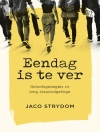The edited volume aims to re-contextualize revolts in early modern Central and Southern Europe (Hungary, Croatia, Czech Lands, Austria, Germany, Italy) by adopting the interdisciplinary and comparative methods of social and cultural history. Instead of structural explanations like the model of state-building versus popular resistance, it wishes to put back the peasants themselves to the historical narratives of revolts. Peasants appear in the book as active agents fighting or bargaining for freedom, which was a practical issue for them. Nonetheless, the language of lord-peasant negotiation was that of religion, just as official punishments used Christian symbols. The approach of revolts as the events of collective violence also highlights the experiences and memories of participants. How did individuals and groups use remembering and forgetting as a means of forging an identity for themselves? Instead of the narratives of the powerful that became the normative stories of history, the perspective of the rebels uncovers the everyday faces of revolts more forcibly. Finally, contributors examine how later narrators used the rebels for their own purposes, in other words the subsequent representation of the revolts and their leaders in image, literature and historiography comes to the fore. The volume aims to overcome disciplinary boundaries by bringing together historians and scholars of related disciplines including the history of literature, the visual arts and anthropology. The central contention of the volume – the cultural imprint of peasant revolts – is fully addressed, thereby filling a conspicuous gap in the currently available literature.
About the author
Dr. Bruce Gordon is Professor of Ecclesiastical History at Yale Divinity School.












